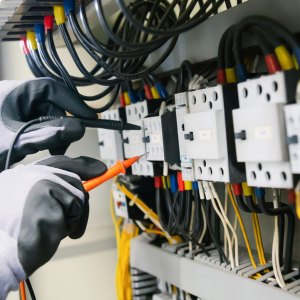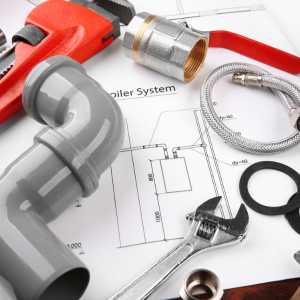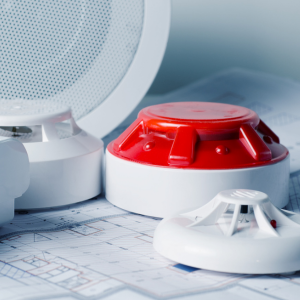
Understanding Code Violations When Selling a House in Chicago, IL
If you are trying to sell a house in Chicago, IL, with code violations, you need to know exactly what the violations are and what they mean. Code violations can be minor, like paint peeling off, broken handrails, or bigger, like out-of-date electrical systems or structural problems.
The Department of Buildings in Chicago has strict building codes that must always be followed. If a seller finds any violations, they must fix them before putting their home on the market. If you don’t fix these problems, you could get fined or have the selling process slowed down.
The sellers must inspect the property thoroughly to find any possible code violations. Hiring a professional real estate agent who knows the rules in your area can help you understand city laws and decide which repairs will have the most considerable effect on your home’s saleability.
Also, it’s essential to see things from the buyer’s point of view; many people are hesitant to buy homes with unresolved code violations because they might be responsible for them in the future. Suppose sellers want to attract buyers willing to make the necessary repairs and ensure the house meets Chicago’s building standards. In that case, they might offer repair credits or lower the asking price.
Common Types of Building Code Violations in Chicago Real Estate
In Chicago real estate, common building code violations that can make it harder to sell a house are problems with the plumbing, electrical systems, and the structure itself. Electrical system violations are often caused by old wiring or circuits that can’t handle enough current. These are serious safety issues that need to be fixed right away.
Plumbing code violations often involve bad installation methods or materials that don’t meet the standards. This can cause leaks and water damage. Not only do structural problems, like foundation cracks or not enough load-bearing supports, break the rules, but they also put the property at risk.
Additionally, many homes have problems with fire safety measures, like not having enough smoke detectors or blocked exits. Chicago homeowners who want to sell their homes need to take care of these code violations immediately because they can affect legal compliance and marketability.
Knowing about these common problems helps sellers make repairs quickly and decide which updates are most important before putting their homes on the market. Contact A Team Real Estate Solutions to make selling your home easier and faster.
Assessing the Impact of Code Violations on Property Value in Chicago
When selling a house in Chicago with code violations, it is essential to determine how much the violations will lower the property value. Code violations can make a home much less marketable and less valuable in the eyes of potential buyers, who see them as red flags that mean the house will need more work and cost more money.
In Chicago, common code violations include plumbing, electrical, or structural problems and not following the city’s building rules. These violations can turn off buyers who don’t want to or can’t make the repairs needed to bring the property up to code.
Also, lenders might not want to finance homes with unresolved code issues, reducing the number of people who can buy the house. The Chicago real estate market is very competitive, so sellers who want to get the most money for their property need to know how these violations affect appraisals and negotiations.
Sellers might want to get a professional inspection report that lists any code violations and how much it will cost to fix them. This information can help potential buyers set realistic expectations about the price and make negotiations more open with sellers who may want to negotiate price cuts or concessions based on how many repairs need to be done.
Legal Requirements for Selling Houses with Code Violations in Illinois
To make sure the sale of a Chicago, Illinois, home with code violations goes smoothly, you need to know what the law says. Illinois law says that sellers must tell people interested in buying that they know about any code violations. This is known as “property disclosure.”
This rule is significant to follow so that everything stays clear and there are no more legal issues in the future. The seller must fill out and give a Real Property Disclosure Report. It lists any issues or problems with the property, such as plumbing, electrical, structural, or zoning code violations.
Code violations don’t stop the house from being sold, but if you don’t tell the buyer about them, you could be in big trouble with the law. To get through these challenging situations, sellers should talk to a real estate lawyer who knows the rules in Illinois and Chicago.
Some buyers may also agree to take the house “as-is,” but this should be made clear in the sales contract so there are no questions. Buyers and sellers can trust each other more when they know these legal requirements. It also makes sure that state laws are followed.
Disclosure Obligations: Informing Buyers About Property Code Issues

If you are selling a house in Chicago, Illinois, that doesn’t follow the rules, you need to know what to tell interested people. The law states that sellers must inform potential buyers about any issues with the property code. Being honest about these issues can make the deal go much more smoothly.
If you don’t tell someone about known code violations, you could get in trouble with the law or lose money. People who own homes should be honest about structural issues, safety risks, or violations of building codes.
Being open and honest about these things can help sellers build trust with potential buyers and make the negotiation process more open. Stick with your real estate agent and maybe even talk to a real estate lawyer to ensure that all of the disclosures are complete and that you are following the laws of Illinois.
This extra step helps the closing go more smoothly and makes the property look better in the tough Chicago real estate market, allowing you to sell your Chicago, IL, house faster and in nearby areas.
The Role of Home Inspectors in Identifying Code Violations Pre-sale
Homes for sale in Chicago, IL, that don’t follow the rules must have home inspectors look over them. Since they are professionals, they can carefully check the property for issues that may be against the laws in your area.
By conducting a thorough pre-sale inspection, sellers can find problems with the structure, plumbing, and electrical system that must be fixed to meet compliance standards. If sellers find these code violations early on, they can fix them before they worsen and cause the sale to take longer.
It can be hard to sell a house in Chicago. A complete inspection report can be beneficial if sellers want to be honest with potential buyers and earn their trust. If you hire a qualified home inspector who knows the rules in Chicago, they will ensure that all parts of the property are checked out based on the city’s rules. This will help the deal go more smoothly and give the buyer more faith.
Cost-effective Repairs to Address Building Codes Before Listing Your House
If you’re selling a house in Chicago, IL that breaks the rules, you should fix them in a way that doesn’t cost much money so that the deal goes more smoothly. First, carefully review the whole thing to see any interesting building code violations.
Fix things that need to be fixed but won’t cost a lot of money. For example, repair plumbing leaks, ensure electrical systems are up to code, and replace broken windows or doors. Plus, these changes make the house look better without spending much money. They also make it safer and more useful.
If the paint on your walls and ceilings is peeling or has lead, you might want to paint them again. This happens often in older homes in Chicago. Small structural problems, like foundation cracks or roof leaks, can be fixed to prevent the building from falling apart even more and give buyers more confidence.
In Chicago’s competitive real estate market, sellers can make their home a good choice by making necessary repairs and following the city’s building codes.
Strategies for Resolving Code Violations Before Selling Your Home
If you want to sell a house in Chicago that breaks the rules, fixing them before the sale can help you sell it faster and for more money. First, do a full inspection of the house to see if there are any code violations, such as pipes, wiring, or structural problems.
Talk to a real estate agent who knows about Chicago’s building codes to determine which repairs will give you the best return on your investment. By getting licensed contractors to fix these issues, you can be sure to follow city rules and stay out of trouble while the house is being sold.
Also, ensure you have all the licenses and papers you need to prove that your work is correct in your area. Do something right away about these violations. If sellers do this, negotiating and closing the deal will be easier. It will also help sellers get serious buyers.
A real estate lawyer can also help you with tricky legal issues and ensure everyone is on the right side of the deal.
How City Policies Affect Selling Properties with Unresolved Code Problems
If you want to sell a house that breaks the law in Chicago, you must know a lot about the laws there. These rules might change how you sell things in a big way. This city has strict regulations for housing and building to ensure that everything is safe and of good quality. But code issues that aren’t fixed can make it harder to sell or buy a home.
People selling should know that buyers might be hesitant to buy because fixing these problems could get them in trouble with the law. Most of the time, this means less money or more time on the market. The Department of Buildings watches over the city and ensures everyone follows the rules. Homes that still don’t follow the rules could be fined or given liens, making them even less likely to sell.
To get a good deal with buyers who want price cuts or other deals to cover expected repair costs, they need to know these rules inside and out. Real estate agents who know the laws and rules in your area are the best ones to work with. You could also sell to investors who know how to deal with foreclosed homes. These steps can help reduce the problems that arise when code problems aren’t fixed.
Pros and Cons of Selling a House ‘as-is’ with Known Code Violations
Some people in Chicago, IL, sell homes “as-is” even though it’s against the law. Selling a house “as-is” might be faster because the seller doesn’t have to fix things to meet building codes.

This strategy can work in Chicago’s challenging real estate market. People may want to buy rental homes or homes that need work but will be worth more once they’re done. Those who buy something “as-is ” are also in charge of fixing any issues. Some sellers might be unable to make the changes because they don’t have the time or money to do so. This can help them because it will save them money and make their lives easier.
But you should think about some critical things. People might not want to deal with the issues when they buy a house that breaks the rules. This could make people offer less than they would for a home without legal problems.
Because they fear code violations, lenders may also make it hard for people who want to buy a house to get loans. Other rules say sellers must tell possible buyers about any violations they know of. If someone wants to do it but is afraid of how much it will cost to fix or what the law says will happen, they might not.
Many people still think buying homes in Chicago with unfixed problems is a good idea. They believe that by doing this, they can get better terms or prices that reflect the property’s condition and the repairs that need to be done.
How to Negotiate with Buyers on Properties with Code Issues in Chicago
If you want to sell a house in Chicago that doesn’t follow the rules, you need to be honest with the buyer and have a plan before you start. First, tell people who might buy the code about all the known bugs. If you are honest, people will trust you more, and fights will stop.
Show that you care for the property by pointing out any changes or fixes that have improved it. It’s smart to get repair quotes from Chicago companies you can trust. This will help when you discuss lowering prices or giving credits at the end of the deal.
Telling them the truth about how long it might take and how much it might cost will make them trust you more. This will also tell them how much work they must do, which could make them change their minds. Yes, you can fix your house and make it look better creatively. You could offer to pay for the repairs or help the seller pay for them.
You can also check out how the Chicago market is doing to see how firm your offer is for homes that don’t follow the rules, and A Team Real Estate Solutions can help you make sense of the data.
Working with Real Estate Agents Experienced in Code Violation Sales
Code violations exist in the Chicago, Illinois house you want to sell. Working with real estate agents with experience with these kinds of homes can speed up the process. They must ensure that people who rent in this area follow the rules. They are very good at handling problems that arise when laws are broken.
When you have problems with things like zoning laws, building flaws, or safety, they can give you invaluable advice on handling them. With the help of their network and knowledge, these real estate agents can sell your home to investors and buyers who are used to buying homes that need repairs or renovations.
Agents who have worked in real estate for a long time can also help you get good terms, considering any prior code violations. This ensures that everything goes well and the law is followed. They can set a fair price because they know much about this niche market. This also speeds up sales by focusing on the right people who see potential beyond the obvious problems.
Even if following the rules is problematic, working with knowledgeable real estate experts will increase the chances of a successful sale.
Marketing Tips for Selling Homes with Minor and Major Code Infractions
If you want to sell your Chicago, IL, house, you must market it well, even though it breaks the rules. This will help you find the right buyers and make the sale. Build trust with possible buyers by telling them about all the code violations, whether big or small.
Say what makes the house special that can compensate for its flaws, and stress how it could be fixed or improved. People who buy and sell homes quickly and know how to deal with property, breaking the law, can be beneficial. This is because they are always looking for ways to make their properties more valuable by fixing them up and adding new features.
If you want to get a reasonable price for the house, you might want to consider how much it will cost to fix it up. This could make it more appealing to people on a tight budget. Online and social media are great ways to get your message out to more people. Use them to show high-quality photos and virtual property tours that show off its good points while being honest about its problems.
People willing to invest in a fixer-upper project in Chicago’s active housing market might also be interested in restoration grants or incentives in the city. If you want to sell quickly, we buy Cicero, IL, homes and nearby areas and can help simplify the process.
Financing Options for Buyers Interested in Homes with Existing Code Violations
When buyers in Chicago, IL, are looking at financing options for homes with code violations, it’s essential to know the unique problems and challenges these homes pose. Because they see it as risky, traditional mortgage lenders may not want to finance homes that break the rules, but there are other ways to get the money you need.
Many people choose FHA 203(k) loans because they give money for both the purchase of a home and the repairs and improvements that need to be made to bring it up to code. Hard money lenders may also offer short-term loans based on how much the property could be worth after repairs, but the interest rates on these loans are usually higher.
Buyers should also look into local government programs that might offer grants or low-interest loans to help fix code compliance problems and bring neighborhoods back to life. Working with real estate agents who have dealt with properties with violations before can help you get through these financing options, ensuring buyers and sellers can reach their goals, even though code violations may complicate things.
Expert Advice on Pricing Your Home with Outstanding Building Codes
When setting the price of a Chicago home with outstanding building code violations, it is crucial to get professional advice to make the best deals. First, a full inspection of the property is done to determine the problems and codes that need to be followed.
Working with a real estate agent who knows the Chicago housing market well can help you set a competitive price considering these issues. They can also help you look at similar sales in the area and consider how much it might cost to fix any code problems.
Knowing what the buyer wants and emphasizing transparency about violations can help build trust and make negotiations go more smoothly. You should also talk to local contractors or inspectors who can give you an accurate estimate of the cost of repairs. This will help you set the right price for your home while considering the improvements that need to be made.
By getting expert advice on setting prices, sellers can find buyers willing to invest in homes that break the rules while making the most money possible.
Long-term Implications of Not Resolving Building Codes Before a Sale
Failing to address building code violations before selling a house in Chicago can have significant long-term implications for both the seller and the buyer. Unresolved code violations can drastically reduce the property’s market value, as potential buyers often perceive these issues as costly future repairs or legal liabilities.
These unresolved infractions may also result in extended time on the market, increasing sellers’ carrying costs due to ongoing mortgage payments, insurance, and property taxes. Furthermore, prospective buyers might face difficulties securing financing from lenders who typically require properties to meet specific safety and habitability standards before approving loans.
This could limit the pool of interested buyers and compel sellers to accept lower offers or provide concessions during negotiations. Not resolving these violations could also lead to legal disputes post-sale if buyers discover undisclosed issues that breach disclosure laws, exposing sellers to potential lawsuits and financial penalties.
Addressing building code violations before listing ensures smoother transactions and protects all parties from unforeseen complications.
What Happens If a House Is Not Up to Code?
When a house in Chicago, IL, is not up to code, it can present significant challenges for homeowners looking to sell. Properties with code violations may face legal and financial repercussions that complicate the selling process.
Buyers might be hesitant to purchase a home with outstanding code issues due to potential safety hazards and the cost of necessary repairs. The city of Chicago enforces strict building codes designed to ensure safety and compliance, meaning sellers must address these violations before listing their property or risk fines and delays in closing the sale.
Failure to bring a house up to code can result in penalties, liens on the property, or even legal action by local authorities. For sellers dealing with such properties, understanding effective strategies is essential; this includes negotiating repair responsibilities with buyers or adjusting the asking price to reflect the costs associated with bringing the home up to standard.
By proactively addressing code violations, sellers can facilitate a smoother transaction process and avoid complications that could derail the sale of their home in Chicago’s competitive real estate market.
Is It Hard to Sell a House with Unpermitted Work?

Selling a house with unpermitted work can pose challenges, especially in a city like Chicago, IL, where strict building codes and regulations are enforced. Homes with code violations, such as unpermitted renovations or additions, often deter potential buyers due to the risk of future legal complications and costly remediation.
However, effective strategies exist to navigate these hurdles. Firstly, obtaining an inspection report identifying all code violations is crucial for transparency and helps set realistic buyer expectations.
Additionally, working with a real estate agent experienced in selling properties with code issues can be invaluable; they can market the property to investors or cash buyers who are more willing to take on homes needing work. Pricing the home competitively is also essential to attract interest despite its unpermitted work status.
Furthermore, offering credits or incentives for necessary repairs can sweeten the deal for prospective buyers wary of undertaking corrective measures themselves. By employing these targeted strategies, sellers in Chicago can successfully sell their homes even when facing the challenges associated with unpermitted work and code violations.
Sell your house fast for cash with A Team Real Estate Solutions. We buy homes in any condition, so you don’t have to worry about repairs, fees, or delays. You’ll receive a fair cash offer, we will handle all the paperwork, and you can choose the closing date that works best for you. Call (708) 608-0420 today for a free, no-obligation offer.
![Selling House To A Cash Home Buyers in [market_city]](https://image-cdn.carrot.com/uploads/sites/48444/2026/02/Selling-House-To-A-Cash-Home-Buyers.jpg)
